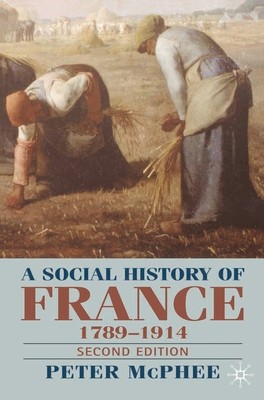
- We will send in 10–14 business days.
- Author: Peter McPhee
- Publisher: Bloomsbury Publishing PLC
- ISBN-10: 0333997514
- ISBN-13: 9780333997512
- Format: 15.7 x 23.2 x 2 cm, minkšti viršeliai
- Language: English
- SAVE -10% with code: EXTRA
Reviews
Description
This volume provides an authoritative synthesis of recent work on the social history of France and is now thoroughly revised and updated to cover the 'long nineteenth century' from 1789-1914. Peter McPhee offers both a readable narrative and a distinctive, coherent argument about this century. McPhee explores themes such as peasant interaction with the environment, the changing experience of work and leisure, the nature of crime and protest, changing demographic patterns and family structure, the religious practices of workers and peasants, and the ideology and internal repercussions of colonisation.
EXTRA 10 % discount with code: EXTRA
The promotion ends in 23d.00:43:03
The discount code is valid when purchasing from 10 €. Discounts do not stack.
- Author: Peter McPhee
- Publisher: Bloomsbury Publishing PLC
- ISBN-10: 0333997514
- ISBN-13: 9780333997512
- Format: 15.7 x 23.2 x 2 cm, minkšti viršeliai
- Language: English English
This volume provides an authoritative synthesis of recent work on the social history of France and is now thoroughly revised and updated to cover the 'long nineteenth century' from 1789-1914. Peter McPhee offers both a readable narrative and a distinctive, coherent argument about this century. McPhee explores themes such as peasant interaction with the environment, the changing experience of work and leisure, the nature of crime and protest, changing demographic patterns and family structure, the religious practices of workers and peasants, and the ideology and internal repercussions of colonisation.


Reviews